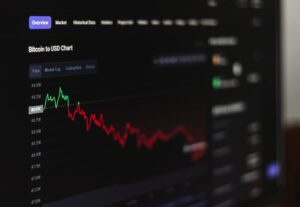Understanding Forex Fines: What Traders Need to Know
Forex trading is a fast-paced and highly competitive industry that attracts millions of traders around the world. With the potential for high returns and the ability to trade 24 hours a day, forex has become a popular choice for both retail and institutional investors.
However, with the benefits of forex trading come certain risks and challenges. One such challenge is the risk of incurring fines for violating trading regulations. In recent years, regulatory agencies have become increasingly vigilant in monitoring and penalizing traders who engage in illegal or unethical practices.
In this article, we will explore the various types of fines that forex traders may face, the reasons behind these fines, and what traders can do to stay compliant with regulations.
Types of Forex Fines
Forex fines can be divided into two broad categories: regulatory fines and civil fines. Regulatory fines are imposed by government agencies or regulatory bodies such as the Commodity Futures Trading Commission (CFTC) in the United States or the Financial Conduct Authority (FCA) in the United Kingdom. These fines are typically levied for violations of trading regulations, such as insider trading, market manipulation, or failing to meet capital requirements.
Civil fines, on the other hand, are imposed by civil courts and are typically the result of legal disputes between traders or between traders and their brokers. These fines can be levied for a variety of reasons, including breach of contract, fraud, or misrepresentation.
Reasons for Forex Fines
There are several common reasons why traders may incur fines in the forex market. One of the most common violations is insider trading, which involves trading based on non-public information that gives the trader an unfair advantage. Insider trading is illegal in most jurisdictions and can result in substantial fines and even criminal charges.
Market manipulation is another common violation that can lead to fines. This includes practices such as spoofing, where a trader places large orders with no intention of executing them, in order to create a false impression of market demand or supply. Other forms of market manipulation include front-running, where a trader executes orders on their own account ahead of executing orders for their clients, and pump-and-dump schemes, where traders artificially inflate the price of a currency before selling it at a profit.
Failing to meet capital requirements is a violation that can result in fines, as well as other regulatory actions such as revoking a trader’s license or placing restrictions on their trading activities. Capital requirements are set by regulatory bodies to ensure that traders have sufficient funds to cover potential losses and maintain market stability.
Staying Compliant with Regulations
To avoid incurring fines, forex traders need to stay compliant with the regulations set by the relevant authorities. This involves understanding and adhering to the rules and guidelines governing forex trading in their jurisdiction.
One of the most important steps traders can take to stay compliant is to choose a reputable and regulated broker. Regulated brokers are subject to strict oversight and are required to follow certain rules and guidelines to protect their clients. By trading with a regulated broker, traders can reduce the risk of falling afoul of trading regulations.
Traders should also familiarize themselves with the specific regulations in their jurisdiction and stay updated on any changes or updates. This can be done by regularly checking the websites of regulatory bodies or subscribing to newsletters and updates provided by these agencies.
In addition, traders should develop a thorough understanding of trading regulations and best practices. This can be achieved through educational resources such as online courses, webinars, and industry publications. By continuously improving their knowledge and skills, traders can minimize the risk of regulatory violations.
Conclusion
Forex fines can have serious financial and legal implications for traders. Understanding the types of fines that can be incurred, the reasons behind these fines, and how to stay compliant with regulations is crucial for traders who want to operate in a legal and ethical manner.
By choosing a regulated broker, staying informed about trading regulations, and continuously improving their knowledge and skills, traders can reduce the risk of incurring fines and ensure a smooth and successful trading experience in the forex market.






